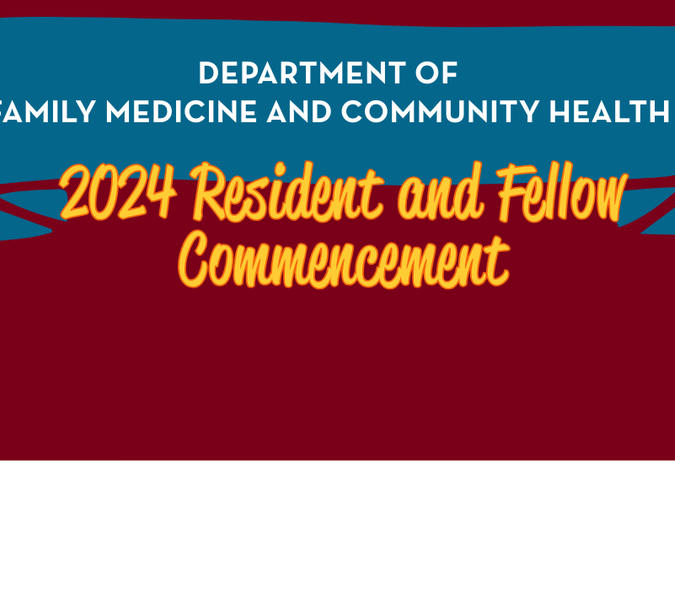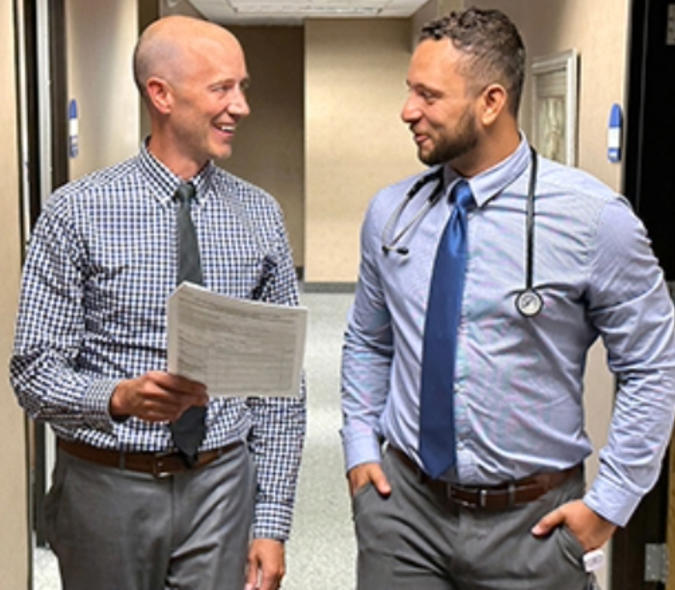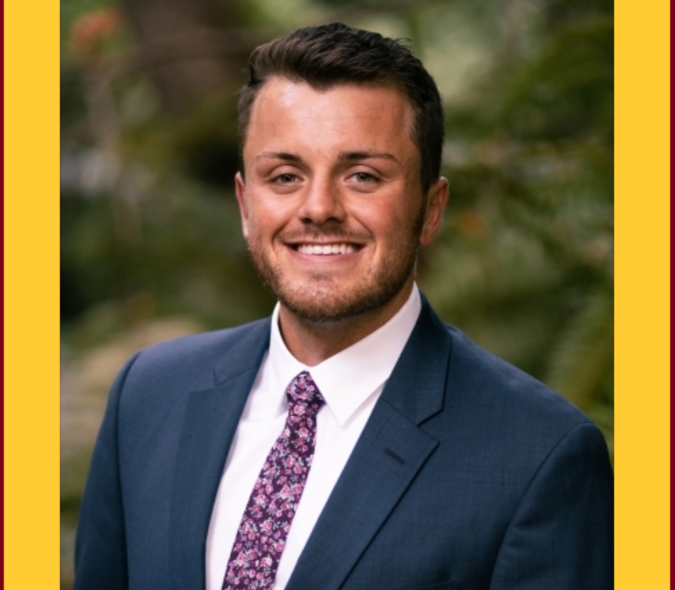Methodist Third-year Residents Receive Valuable Experience at Central Community Clinic
In this interview with Katherine Roselius, MD, recent graduate from Methodist Hospital Family Medicine Residency Program, Dr. Roselius shares her experience as a third-year resident working at Central Community Clinic—a free, walk-in clinic for children from birth through high school who live or go to school to public or private schools in St. Louis Park, Minnesota—as part of her residency training.
Can you tell us about Central Community Clinic and your experience with it?
Central Community Clinic is a free clinic that is available for local students at the St. Louis Park schools. There's an actual clinic space that's used by us and the dental group; we provide services and resources for all the local students who want to come in. They're allowed to visit the clinic during school as needed. With parental permission, they can be seen for any reason. The main things that we end up doing are birth control counseling and STD testing and education about that. There are various acute concerns like rashes. I also perform a lot of sports physicals.
One of the things that I find rewarding about Central is that many of the patients I see are people who have not had a lot of interface with healthcare in general. It's a nice first step where the school can recommend the clinic as a safe space at school. It's convenient and easy for students to find. They can come in, and it's the same front desk person and same nurse. The only care member that switches is the resident who happens to be on duty. Having Central Clinic right there demystifies health care a little bit for people and makes it easy for them to get all of their immediate care needs met. If they need referrals, we have referral options for low-income things like eye care and dental care. We give them resources that are close by and easy to find in a variety of different languages. It's a good first point of contact for a lot of people who need healthcare.
What kinds of patients do you see at Central Community Clinic?
It runs the gamut. The majority of folks are probably of lower socioeconomic status. A lot of new immigrants come as well who have not yet gotten health insurance; this is a way for them to get a sports physical so they're not limited in school activities.
I recently performed sports physicals and immunizations for a couple of students who just came from Mexico. They're in the process of trying to get health insurance since they wanted to play soccer. A student should be able to play soccer in school and not be limited by whether or not they have health insurance. That was something beneficial that we were able to do for them.
We also see students who have been coming every year for their sports physical, so we know them pretty well. These are folks who've lived in St. Louis Park their entire lives and go to school there. It's very convenient for parents, too. As long as the parents give permission, the child can come see us, go back to class afterward, and it doesn't disrupt the parents' workday at all.
How does the care at Central Community Clinic get incorporated into the Methodist residency program?
This clinic care experience is offered to third-year residents and is integrated into the residency program. The clinic is open on Tuesdays and Thursdays in the afternoons. All of the residents are able to practice independently. There is always a preceptor backup in case they need a little bit of help.
One thing I've heard is that a lot of residents want to do it in their second year as well. Everyone wants to get involved as soon as they can, but Methodist is such a busy, hospital-heavy program that there just isn't a lot of time for second-year residents to participate.
Third-year residents all rotate through and come to Central Community Clinic a few times a month. For residents, it's a great way to dip your toe into independent practice because you're there with a nurse, a front desk staff person, and that's it. It is very rewarding because these are students who may not otherwise receive medical care. Once we see them at Central, we can also tell them about Creekside Clinic and let them know that it's very similar at Creekside as far as the individualized care they receive. I've had students come see me in my clinic because of Central.
Now that you are an alum, how has this experience aligned with your clinical interests?
I'm now doing clinic and hospital care in rural Minnesota. When I think about my work now, I can see how Central Community Clinic prepared me. Central is a smaller operation, and practitioners need to get used to only having a few resources; it teaches you how to optimize those. I also learned how to refer patients out to various resources in the community.
It's really good teaching for residents to say, "I have this available to me. How am I going to get creative and use it for my patients? And then, if I can't, how do I get them the care that they need with the knowledge that they don't have health insurance, they don't speak English, or they don't have a ride?"
All of this was definitely applicable to life as a family medicine physician in rural Minnesota. Nowadays it's still a lot of asking myself how I find those needed resources and how I can optimize them for my patients. And, just like at Central Community Clinic, I am seeing many patients who are underserved. Having the training and experience at Central gave me a chance to interface with those groups and try to identify what their needs are. That is one great benefit that Central offers Methodist residents.
Is there anything else you want to share about this experience?
A few months ago, I had a student come in with their parents for a sports physical. They had no health insurance. I was able to listen to them and recommend the best course of action due to having a certified interpreter. It came to light that this individual had never seen a doctor prior to coming to Central. They had just emigrated to the United States, and I was the first doctor that they had ever seen. They had no clue about how health insurance works. They only came to see me that day because the school recommended going in for a sports physical. The patient had never seen a dentist. No immunizations. It was a stunning experience for me to treat somebody who had never seen a doctor before; it was a moment of, "I can really help you. I have things I can do to help you."
I performed the physical, set them up with dental care and eye care, and made plans for them to return in a week to see how things are going. We were able to start their vaccines, get them connected with the social worker, and help them apply for medical assistance. The parent said they didn't know they needed to do all this, and I could see they were getting overwhelmed by it. I was able to allay their concerns.
These are the kind of meaningful teaching moments that Central Community Clinic offers residents. The United States healthcare system is so hard to navigate, especially for people who've never done it. We are able to offer healthcare, services, and essential help with navigating something that's really difficult to navigate—even for someone like me. Working at Central as part of my residency was a great experience. Nearly every day I would think, "I'm so grateful that I was able to do this for this person."
Learn more about Methodist Hospital Family Medicine Residency Program



